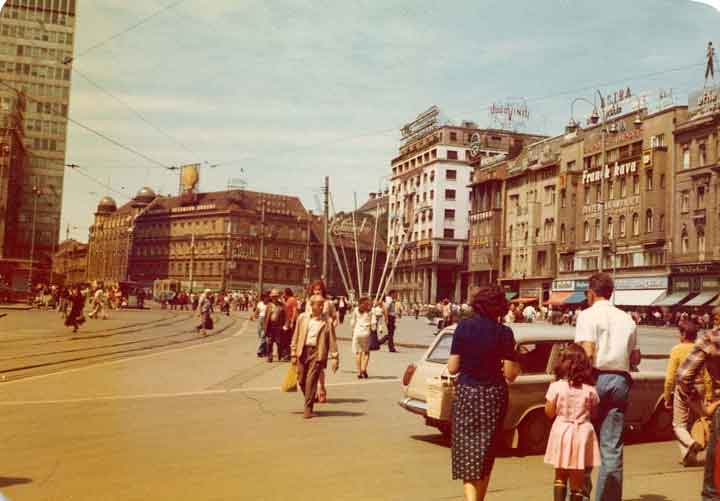Tito Breaks with the Soviet Union

Zagreb
Significant differences developed between Soviet leader Stalin and Yugoslav leader Tito. When compared to other Easter European leaders, Tito was largely independent. He was primarily concerned with the interests of Yugoslavia. Tito was able to maintain this independence, since Russian forces had not been the liberators of Yugoslavia. Rather, the Yugoslav partisans, under Tito, had forced the Germans out.
As Tito did not follow the Soviet line, Stalin recalled all Soviet advisors from Yugoslavia, and canceled all economic agreements. Tito responded by reaching economic agreements with the West. It became clear that Communism in Europe was not monolithic.
The Yugoslavic Communist Party had been the leading partisans against the German and Italian occupiers. They successfully liberated the country without either the Soviet or American armies. In the immediate aftermath of the war, the country received over $415 million from the United Nations Fund.
The Communist Party was led by Josip Broz Tito, who felt that he did not need any other parties in the government of Yugoslavia. Therefore, he held elections where it was either the Communist Party or the “opposition.”
Tito created a constitution modeled on the Soviet constitution and imprisoned opponents of his regime, executing some of them. He also began the force collectivization of land.
Initially, relations with Moscow were very warm, with the Soviets praising Tito’s actions and Tito’s government singing the praises of the USSR. Then, however, Stalin began to become worried that the activities of the Yugoslav government were becoming too independent and were outdoing the actions of the Moscow government. Furthermore, Tito dreamed of expanding Yugoslav control to Bulgarian and parts of Greece. Tito was thus enthusiastically supporting the Greek Communists. That support resulted in American pushback and, ultimately, the Truman Doctrine, which Stalin had not wanted to provoke.
Beyond the problems Tito was causing with the West, the Hungarian Communist Party began to speak about emulating Tito and not Stalin. Stalin called for a meeting of all the Communist Parties in Szkalaraska Pore, ba in Poland, for late September. The goal of the meeting was to establish the Cominform- the Communist Information Bureau. The underlying goal was to reestablish Stalin’s total control over the communist parties of Europe. At the meeting, the parties were told to take a much more confrontational role in the countries not ruled by the Communists. At this meeting, the Yugoslav delegates were singled out for praise.
However, Tito’s continued independence was too hard for Stalin to overlook. In February 1948, Stalin publicly condemned Titos idea of a Balkan Federation. Trade negotiations between the two countries were called off. In March, the Soviets recalled their military and civilian advisors.
Tito refused to attend the next Cominform conference scheduled for June. At that conference, the split between the Soviets and the Yugoslavs became official when Yugoslavia was expelled from the Cominform, for refusing to recognize the sacrifices of the Red Army in liberating the country.
The Soviets began a trade embargo against Yugoslavia, and the USSR went from 46 percent of Yugoslavian trade to 14 percent the year later. However, help from Western nations and trade with them allowed the Yugoslavs to overcome the boycott.
 >
>